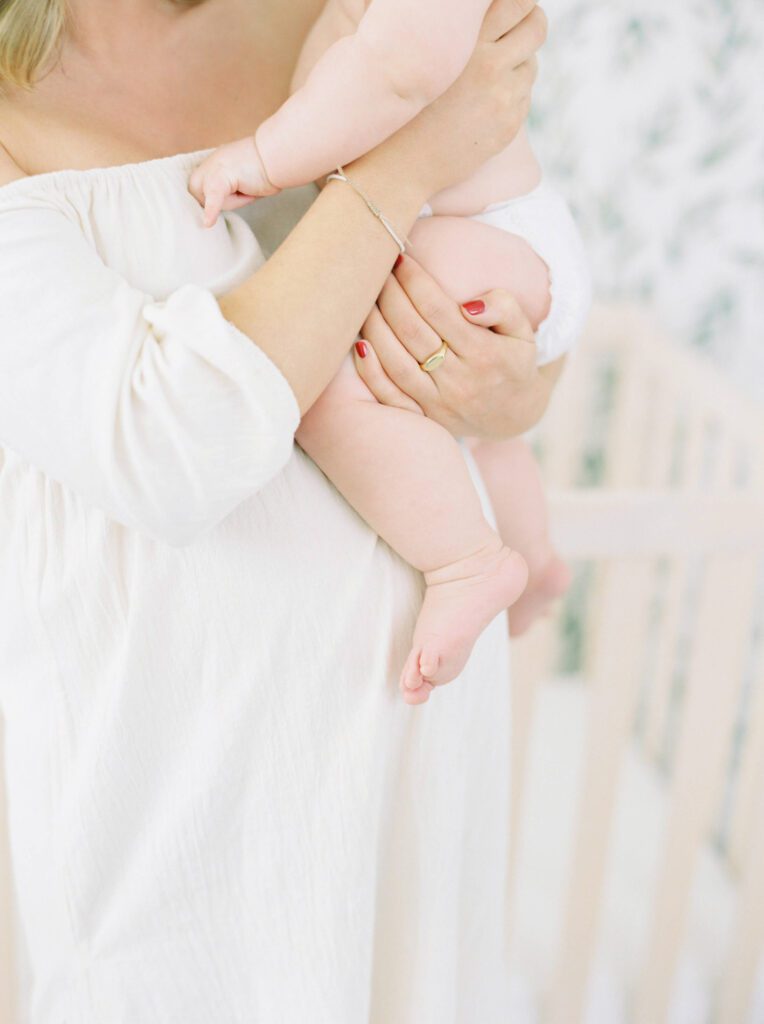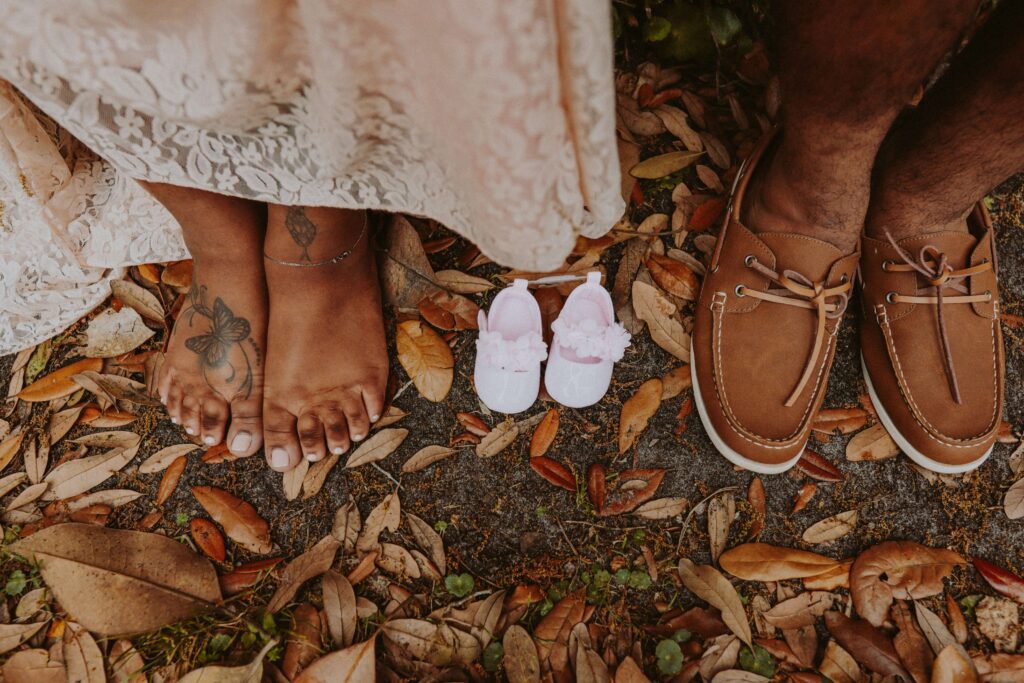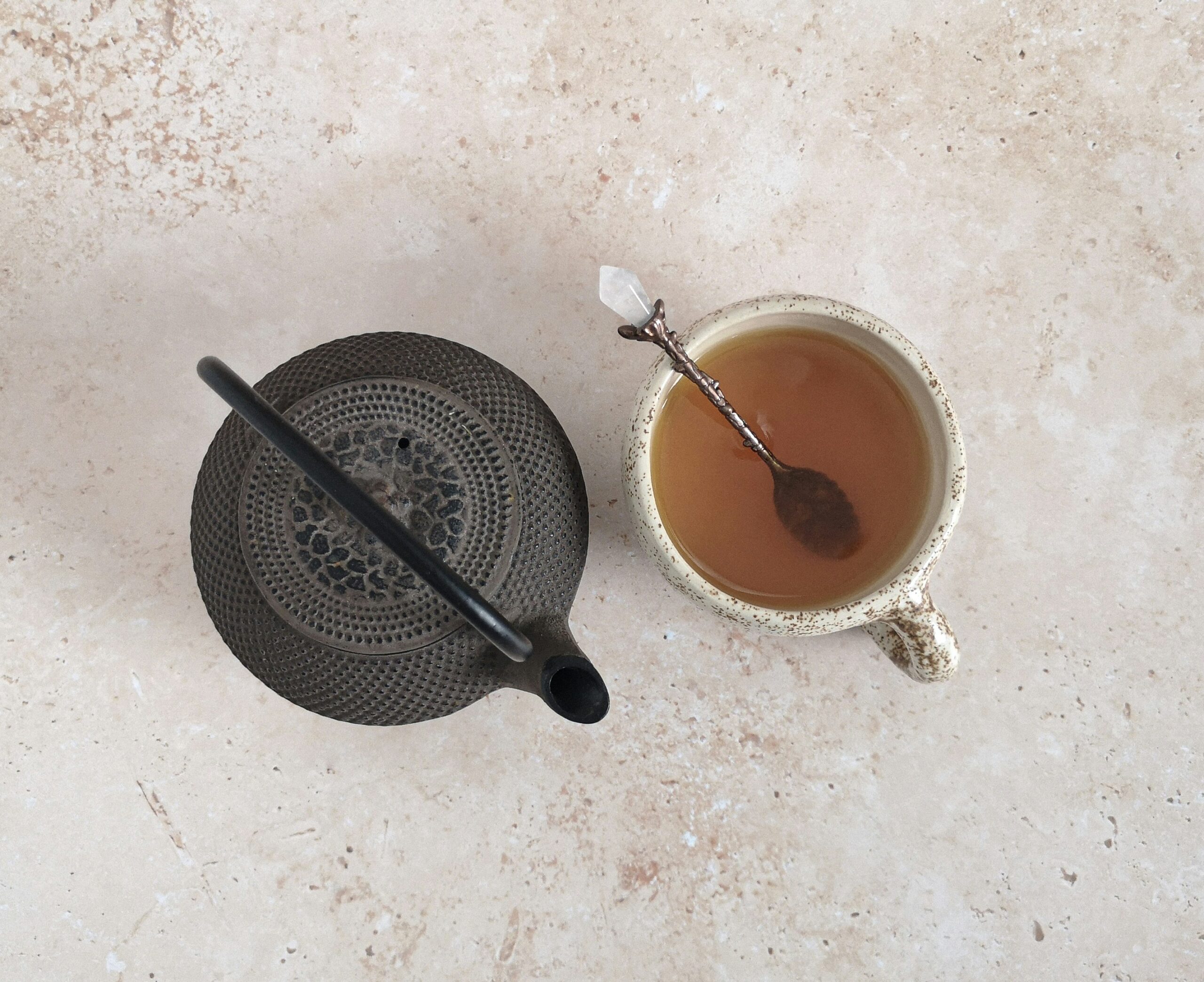

Herbs Not Safe for Pregnancy? Are there any?
For expectant mothers, it’s natural to be cautious about everything you consume, including herbs. While herbs have been used for centuries in culinary and medicinal contexts, during a pregnancy, their safety is not always guaranteed. Several herbs which might seem harmless can actually pose significant risks during pregnancy, including the potential for triggering preterm labour, causing developmental problems for the baby, or interacting adversely with other medications.
It’s a good idea to understand which herbs to steer clear of. Herbal products (medicinal herbs) or teas, for example, can be deceptive as some contain ingredients that are potentially dangerous during pregnancy. It is always prudent to opt for natural remedies and supplements after careful consideration and consultation with healthcare providers. Post-pregnancy, continuing caution with herb consumption is also important, especially when breastfeeding.
Key Takeaways
- Whilst there are many herbs that are considered beneficial for pregnancy … there are some commonly used herbs may be unsafe during pregnancy and can lead to serious complications, especially on a developing fetus.
- Herbal teas and supplements need to be selected with care to avoid risking the health of both mother and baby.
- Consulting with healthcare providers is crucial before using any herbal remedies including medicinal herbs when expecting or post-pregnancy.
what are we talking about today?
- Understanding Herbal Safety During Pregnancy
- Common Herbs to Avoid Adverse Effects
- Herbal Teas and Pregnancy
- The Risk of Preterm Labour and Herbs
- Herbal Supplements and Medication Interactions
- Natural Remedies Vs. Prescribed Medications
- Consulting Healthcare Providers
- Post-Pregnancy Considerations
- Frequently Asked Questions
Understanding Herbal Safety During Pregnancy
When you’re expecting, it’s crucial to be cautious about what you consume, including herbal supplements. The safety of various herbs during pregnancy isn’t always clear, and with limited research by bodies like the FDA on their effects, it’s best to err on the side of caution.
Some herbs are known to be potentially unsafe for pregnancy due to their stimulating properties on the uterus or their influence on hormonal levels. For example:
- St. John’s Wort: Known for its use in treating depression, it may pose risks during pregnancy.
- Dong Quai: Often used to manage menstrual symptoms but may stimulate uterine contractions.
Herbal teas are often seen as a safe and soothing option. However, moderation is key, and certain types like pennyroyal or goldenseal are best avoided entirely.
Always consult with a healthcare professional before starting any herbal supplement. Some additional steps you can take include:
- Read Labels Carefully: Not all products will specify if they’re safe for pregnancy.
- Quality Check: Choose products from reputable companies that offer certified organic herbs.
The absence of an FDA approval does not necessarily mean an herb is unsafe, but it does suggest that you should be cautious. If you ever feel uncertain, it’s always wise to choose caution and discuss your options with a healthcare provider.
Remember, your baby’s safety is paramount, so taking these steps to understand herbal safety is a positive move for your peace of mind.
Common Herbs to Avoid Adverse Effects
When you’re expecting, it’s crucial to be wary of certain herbs that can be unsafe for your pregnancy. These herbs may induce uterine contractions, elevate the risk of miscarriage, or affect your blood pressure and sugar levels.
We cover 3 things to look out for in herbs ….

#1 Risks of Uterine Stimulation
Certain herbs have been identified as potentially causing uterine contractions, which may not be safe during pregnancy. Herbs such as blue cohosh, black cohosh, and dong quai are known to contract the uterus and should be avoided. They are often used by individuals seeking to induce labour but may pose risks if used without medical supervision.
#2 Potential for Miscarriage Induction
The use of some herbs can inadvertently increase the risk of miscarriage. Pennyroyal, rue, and sage are herbs that you should steer clear of as they can induce uterine contractions leading to a miscarriage. These herbs may be found in various teas and supplements, so it’s essential to check labels carefully.
#3 Herbs Affecting Blood Pressure and Sugar
Managing your blood pressure and blood sugar is critical during pregnancy, and some herbs might interfere with this. Licorice may affect your blood pressure and has also been linked to complications during pregnancy. Ephedra, a herb traditionally used for weight loss, can significantly increase blood pressure and should be avoided. Additionally, goldenseal is another herb to sidestep as it may affect blood sugar levels.
Herbal Teas and Pregnancy
When you’re pregnant, it’s crucial to be mindful of the herbal teas you consume. Some can offer relief, especially from nausea, while others might pose risks to you or your baby. Here’s what you need to know.
Health Benefits – Safe Teas for Managing Nausea … Pregnancy Teas
Ginger Tea: A hearty cup of ginger tea may be just what you need to help manage morning sickness. Ginger has been widely recognised for its anti-nausea properties.
Peppermint Tea: The leaves from the peppermint plant can make a refreshing tea that might help to ease your nausea. It’s a common go-to for many pregnant women experiencing stomach discomfort.
RELATED: The So-Called Healing Power Of Herbal Tea – An Introduction
RELATED: How To Make Ginger Lemon Tea With Honey: Lemon Ginger Tea Benefits
Teas with Questionable Safety
Chamomile Tea: This tea comes in two varieties – German and Roman chamomile. While often used to relieve stress and aid sleep, there’s ongoing debate regarding safety during pregnancy.
Raspberry Leaf Tea: Some have suggested raspberry leaf tea could ease labour, but you should approach this tea with caution. Conflicting information means you should consult your health professional prior to use.
Unsafe Herbal Teas for Pregnant Women
Fenugreek: While some use fenugreek to increase milk supply, it should be avoided during pregnancy due to concerns over its impact on uterine contractions.
Comfrey: This herb has compounds that can cause liver issues and is best avoided during pregnancy. Stay safe and steer clear of teas containing comfrey.
The Risk of Preterm Labour and Herbs
When you’re expecting, the health of your baby is paramount. You might be looking at natural ways to support your healthy pregnancy, but be wary of certain herbs. Using some herbs can increase the risk of preterm labour, a situation where labour starts before the 37th week of pregnancy.
Why are some herbs risky? Certain plants contain compounds that, when ingested, can stimulate the uterus or affect your hormone levels. For example, the otherwise innocent-looking parsley can, in large quantities, stimulate the uterus and possibly lead to preterm contractions.
Here’s a quick reference to steer clear of:
- Cohoshes (Black and Blue): Known to stimulate uterine contractions.
- Dong Quai: Has uterine stimulant effects.
- Licorice Root: Might affect cortisol levels and could contribute to early labour.
Herbs may seem harmless because they’re natural, but they can be potent. If you’re tempted to try an herbal remedy, remember that some could put you at an increased risk of preterm birth.
Be cautious and always consult with your healthcare provider before taking any herbal substances, especially when you’re pregnant. They can provide guidance on safe use or alternative treatments that won’t compromise your or your baby’s well-being. The analysis of data from a pregnancy cohort study stresses the importance of being fully informed about herbal medicine during pregnancy due to associated risks.
It might be tempting to buy into age-old herbal remedies for pregnancy ailments, but it’s critical for the safety of your little one to play it safe with herbs.
Herbal Supplements and Medication Interactions
When you’re exploring herbal supplements, it’s important to be aware of possible interactions with your prescription drugs. Some herbal remedies may affect the way your medication works or amplify potential side effects.

Echinacea, for example, is a popular herb that is often used to prevent colds or boost immune health, but it has the potential to interact with paracetamol, which could alter the efficacy of the drug administration.
Here’s a quick list of common herbs and their potential to interact with various medications:
- St John’s Wort: Can reduce the effectiveness of birth control pills and other prescription drugs.
- Gingko Biloba: Might increase the risk of bleeding when taken with blood thinners.
- Garlic Extract: Could potentially interfere with blood-thinning agents, increasing the risk for bleeding.
It’s also good to note that oral aloe should be avoided during pregnancy due to its potential to stimulate uterine contractions, as mentioned in an overview regarding the safety of herbs.
Make sure you discuss any herbal remedies you’re considering with your healthcare professional. They can help clarify if there are any risks of interaction with your current medications and ensure your safety throughout your treatment.
Natural Remedies Vs. Prescribed Medications
When considering the safety of natural remedies, like herbal supplements, during pregnancy, it’s essential to weigh them against prescribed medications. It’s natural for you to look for vitamins and supplements to support your health and the development of your fetus. However, not all ‘natural’ products are safe to take during this critical time.
Safety is paramount when considering the use of natural remedies. Some herbs and supplements can have potent effects that might harm you or your fetus. For example, evidence suggests that black cohosh may not be safe during pregnancy. It’s important to remember that ‘natural’ doesn’t always mean ‘non-harmful.’
Here’s why you should be cautious with natural remedies:
- Lack of Regulation: Supplements and natural products aren’t as strictly regulated as prescription medications, leading to potential quality and dosage inconsistencies.
- Interaction Risks: Natural remedies can interact with prescribed medications, potentially reducing efficacy or increasing side effects.
- Insufficient Research: Many herbs lack robust research data, particularly concerning pregnant women.
Prescribed medications, on the other hand, undergo thorough testing for safety and efficacy, ensuring they are appropriate to take during pregnancy. Before deciding to use natural remedies, consider discussing:
- The potential risks to your fetus.
- Alternative vitamin supplements that are safe for pregnant women.
- Prescription options that are evidence-based and monitored by your healthcare professional.
Always consult with a health care provider before starting any new medication or supplement during pregnancy.
Consulting Healthcare Providers
When using herbal supplements during pregnancy, it’s crucial for you to discuss their safety and efficacy with a healthcare professional. This could significantly impact both your health and your baby’s well-being.
When to Speak to a Physician or Midwife
You should reach out to a physician or midwife if you’re considering the use of herbal medicines during pregnancy. Pregnant women often consume herbal medicines without consulting their healthcare providers, which can lead to unintended consequences. If you experience any side effects from use of herbal medicine supplements, or if you have pre-existing health conditions, it’s imperative to speak to a healthcare provider promptly.
The Role of Herbalists in Pregnancy Health
Herbalists can be a valuable resource for information on the use of herbs during pregnancy. However, ensure you’re consulting certified herbalists who understand the nuances of pregnancy health. Always cross-reference the advice provided by herbalists with a physician or midwife to ensure the safety and efficacy of suggeste`d herbal treatments.
Evaluating the Quality of Herbal Supplements
The quality of herbal supplements is paramount for your safety during pregnancy. High-quality supplements are more likely to be free from contaminants and accurately labelled with their contents. To evaluate the quality of any herbal supplement:
- Check for a TGA (Therapeutic Goods Administration) listing, which ensures the product meets Australian safety standards.
- Look for supplements that provide detailed information about their ingredients and recommended dosages.
Post-Pregnancy Considerations
After childbirth, your focus might shift towards recovery and caring for your baby, but it’s essential to continue to consider the effects of certain herbs on both your recovery process and breastfeeding.
Impact of Herbs on Breastfeeding
When breastfeeding, it’s critical to know that some herbs can transfer to your breast milk and potentially affect your baby. For instance, peppermint and parsley are two culinary herbs that can decrease milk supply if consumed in large amounts. You might want to minimise these in your diet to maintain a steady supply of breast milk.
Herbs During Recovery from Childbirth
During your postpartum recovery, you might be tempted to use herbs to aid the healing process. Arnica is popular for reducing swelling and may help your body recover. However, it’s important to use it topically, as some herbs can be harmful if ingested during this sensitive time. Always consult with your healthcare provider before adding any new herbs to your regimen post-birth, ensuring they’re safe for both you and your baby.
Frequently Asked Questions
When it comes to pregnancy, being cautious with herbal intake is crucial for your’s and your baby’s health. Here’s a rundown of herbs and natural therapies you should sidestep.
What natural remedies should be avoided during pregnancy?
You must avoid several natural remedies during pregnancy including, but not limited to, saw palmetto, goldenseal, dong quai, and yohimbe. These herbs may pose risks to your pregnancy, such as hormonal changes or preterm labour.
Are there any particular spices to steer clear for pregnant people?
Certain spices can stimulate uterine contractions, such as fenugreek, garlic, cinnamon, and clove in high doses. It’s best to use these spices in moderation to prevent any complications.
Can certain herbal teas be harmful during pregnancy?
Yes, herbal teas containing pennyroyal, comfrey, and licorice root should be avoided as they can cause harm to you and your developing baby. Always check for herbal teas that are specifically labelled as safe for pregnancy.
During the first trimester, what herbs are considered unsafe?
During your first trimester, steer clear of herbs like wormwood, rue, and mugwort. These can interfere with the development of your baby and increase the risk of miscarriage.
What precautions should be taken with herbal remedies in the third trimester?
In the third trimester, it’s imperative to avoid herbs that may induce labour such as black cohosh, blue cohosh, and motherwort. Always consult your healthcare provider before taking any herbal remedies.
In the second trimester, are there any herbs that are not recommended for use?
The second trimester still demands precautions; avoid the use of aloe vera, peppermint, and rosemary in concentrated amounts. These can negatively impact your pregnancy and should be used with caution or avoided.



Comments +